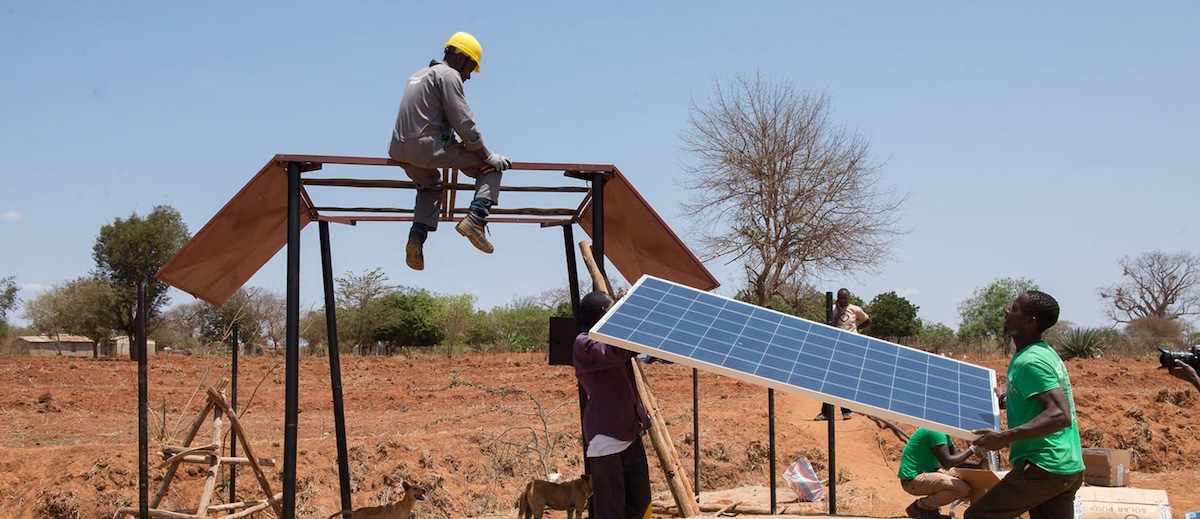ImpactAlpha, May 9 – Long lines at Nairobi’s gas pumps last month put the spotlight on rising prices and fuel shortages caused by war in Ukraine and delayed government subsidy payments. Electric motorcycle manufacturers Ecobodaa and Ampersand, electric bus maker Opibus, and electric battery maker Shift are among the startups seizing the opportunity—and the imperative—to accelerate electric mobility in Africa.
The continent’s e-mobility startups raised only about $105 million last year, out of about $5 billion in total venture capital, according to the consultancy Dalberg and Dutch development bank FMO. But “innovative business models are giving new consumer groups access to e-mobility,” state the report’s authors. “Unlocking ecosystem growth will require deploying the right mix of commercial and concessional capital, including using blended finance tools.”
E-mobility ecosystem
The transport sector accounts for 10% of greenhouse gas emissions in Africa. Africa’s early e-mobility sector is comprised of players focused on electric vehicle production and sales; electric-mobility-as-a-service; and EV infrastructure development.
The most robust e-mobility enterprises work across the EV, battery and charging value chains, Dalberg found, “which enables them to grow the size of their serviceable markets, reduce cost to serve, and increase the defensibility of their business models.”
Ecobodaa in Kenya, for example, is both manufacturing e-motorcycle and developing a network of battery swapping stations.
Favorable policy and regulation will be key to accelerating e-mobility adoption.
Market leaders
Kenya has emerged as Africa’s early leader in e-mobility, primarily for two and three-wheel vehicles. Electric bus companies Opibus and BasiGo are targeting the mass transit sector. Uber last year launched electric motorcycle taxis. Its financing partner Moove is helping drivers across the continent switch to electric vehicles.
In Ghana, where motorcycle taxis are banned, the biggest opportunity is in electric cars. SolarTaxi is helping the country’s taxi drivers rent and buy electric vehicles.
Egypt is looking to build 3,000 charging stations with private-sector backing.
Market models
Fuel subsidies, second-hand vehicle “dumping” from high-income countries, limited charging and power infrastructure, and lack of e-mobility policy frameworks could inhibit e-mobility traction in Africa in the near term. Major mobility players, like Uber, have identified these and other issues as high or very high risks to the business and to low-carbon transition goals.
China and India could provide a market roadmap for African countries looking to drive EV adoption. China has the biggest e-mobility system in the world, with EVs accounting for 15% of the vehicle market.
In India, e-mobility deals include electric vehicle maker Ola’s $200 million raise, and TPG Rise Climate partnership with Abu Dhabi’s ADQ to invest $1 billion in Tata Motor’s new EV unit. India’s government pledged in 2019 to invest $1.6 billion in e-mobility by this year.











